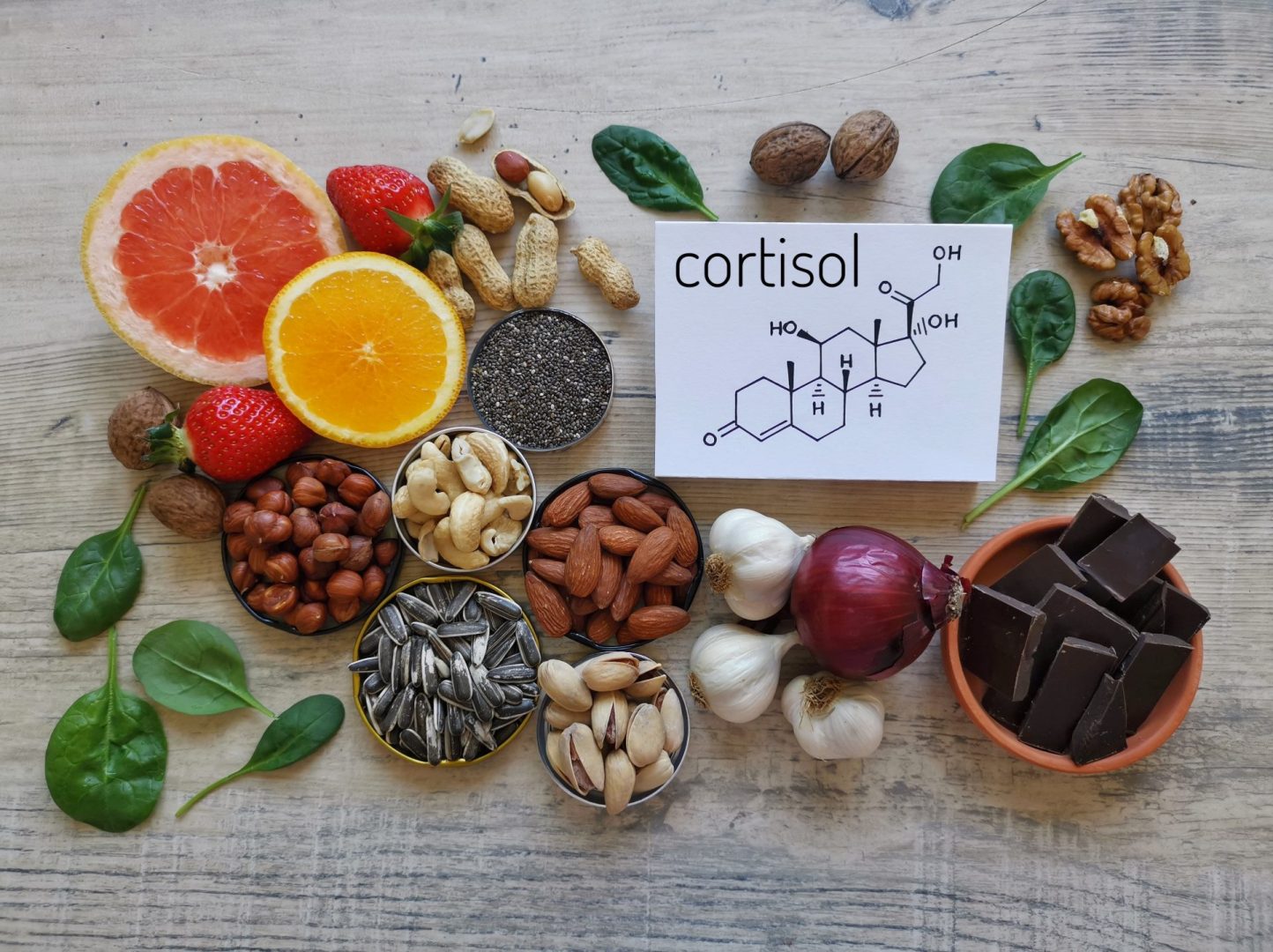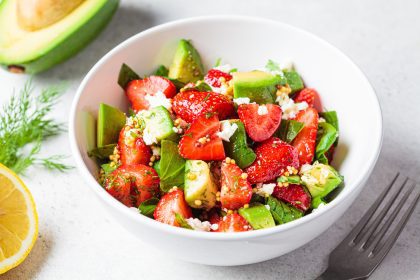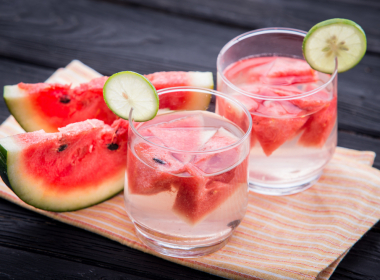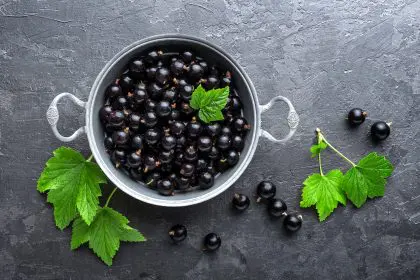The modern world bombards us with relentless stressors that trigger our bodies to produce excessive amounts of cortisol, the primary stress hormone that can wreak havoc on our physical and mental well-being. While occasional cortisol spikes serve important protective functions, chronically elevated levels contribute to weight gain, sleep disruption, weakened immunity, anxiety, depression, and numerous other health complications that diminish quality of life.
The remarkable news is that your kitchen likely contains powerful allies in the battle against elevated stress hormones. Specific foods possess unique biochemical properties that can naturally regulate cortisol production, helping your body return to a more balanced and peaceful state. Understanding how nutrition influences hormone regulation empowers you to take control of your stress response through simple dietary choices.
The relationship between food and hormone production represents one of the most accessible and effective approaches to managing chronic stress. Unlike medications or complex interventions, incorporating cortisol-reducing foods into your daily routine requires no prescriptions, expensive treatments, or dramatic lifestyle overhauls. These natural solutions work with your body’s existing systems to restore hormonal balance and improve overall resilience to life’s inevitable challenges.
Understanding cortisol’s impact on your daily life
Cortisol functions as your body’s built-in alarm system, designed to mobilize energy and resources during perceived threats or challenges. In healthy individuals, cortisol levels naturally fluctuate throughout the day, typically peaking in the morning to help you wake up and gradually declining toward evening to promote restful sleep.
However, chronic stress from work pressures, relationship conflicts, financial concerns, health issues, or environmental factors can disrupt this natural rhythm, leading to persistently elevated cortisol levels that create a cascade of unwanted effects throughout your body and mind.
Elevated cortisol interferes with your body’s ability to regulate blood sugar, leading to cravings for high-calorie, high-sugar foods that provide temporary energy but ultimately contribute to weight gain, particularly around the midsection. This hormonal imbalance also impairs your immune system’s function, making you more susceptible to infections, allergies, and inflammatory conditions.
Sleep quality suffers significantly when cortisol remains elevated during evening hours, as this hormone directly opposes melatonin production and prevents your body from entering the deep, restorative sleep phases necessary for physical and mental recovery. Poor sleep then creates additional stress on your system, perpetuating a vicious cycle of elevated cortisol and decreased resilience.
Mental health impacts include increased anxiety, irritability, difficulty concentrating, memory problems, and heightened emotional reactivity to minor stressors. Many people notice that they feel constantly “on edge” or unable to relax, even during supposedly peaceful moments.
The 8 most powerful cortisol-fighting foods in your kitchen
Dark leafy greens stand out as nutritional powerhouses that combat stress hormones through multiple mechanisms. Spinach, kale, Swiss chard, and arugula contain high concentrations of magnesium, a mineral that directly supports healthy cortisol regulation while promoting muscle relaxation and nervous system calm. These vegetables also provide folate, which supports neurotransmitter production and helps maintain stable mood patterns.
Fatty fish rich in omega-3 fatty acids represent another crucial category of cortisol-reducing foods. Salmon, mackerel, sardines, and anchovies contain EPA and DHA, specialized fats that reduce inflammation throughout the body and support healthy brain function. Regular consumption of these fish helps stabilize cortisol production while improving your body’s overall stress response capacity.
Avocados offer a unique combination of healthy monounsaturated fats, potassium, and B vitamins that work synergistically to support adrenal gland function and cortisol regulation. The creamy texture and satisfying nature of avocados also help stabilize blood sugar levels, preventing the cortisol spikes that often accompany dramatic fluctuations in glucose.
Blueberries and other dark berries contain powerful antioxidants called anthocyanins that protect your body from the oxidative stress associated with elevated cortisol levels. These compounds also support cognitive function and may help improve your brain’s ability to cope with stressful situations more effectively.
Dark chocolate, particularly varieties containing 70% or higher cocoa content, provides compounds that can help lower cortisol levels while simultaneously boosting mood-enhancing neurotransmitters like serotonin and endorphins. The key lies in choosing high-quality chocolate and consuming it in moderate amounts to avoid blood sugar spikes.
Green tea contains L-theanine, an amino acid that promotes relaxation without causing drowsiness. This compound works by increasing alpha brain wave activity, which is associated with calm, focused mental states. Regular green tea consumption can help maintain more stable cortisol levels throughout the day.
Nuts and seeds, particularly walnuts, almonds, pumpkin seeds, and sunflower seeds, provide healthy fats, protein, and minerals that support adrenal gland function. These foods help stabilize blood sugar levels and provide sustained energy that prevents the cortisol spikes associated with blood sugar crashes.
Fermented foods like yogurt, kefir, sauerkraut, and kimchi support gut health, which plays a crucial role in hormone regulation and stress response. The beneficial bacteria in these foods help maintain a healthy gut-brain axis, potentially reducing the inflammatory processes that can elevate cortisol levels.
Timing strategies that maximize cortisol-reducing benefits
The timing of when you consume cortisol-fighting foods can significantly impact their effectiveness in regulating your stress hormone levels throughout the day. Understanding your body’s natural cortisol rhythm allows you to strategically incorporate these foods for maximum benefit.
Morning consumption of protein-rich, cortisol-reducing foods helps support your body’s natural cortisol peak while providing sustained energy that prevents mid-morning crashes. Starting your day with foods like eggs cooked in avocado oil, served alongside spinach and berries, provides multiple cortisol-regulating compounds that work together to stabilize your stress response.
Mid-afternoon represents another critical time for cortisol management, as many people experience energy dips and stress spikes during this period. Incorporating a small serving of nuts or seeds with green tea can help maintain stable energy levels and prevent the cortisol elevation that often accompanies afternoon fatigue.
Evening meals should emphasize foods that support cortisol’s natural decline toward bedtime. Fatty fish paired with dark leafy greens and a small piece of dark chocolate for dessert provides a combination of nutrients that promote relaxation and prepare your body for restorative sleep.
The spacing of meals also influences cortisol regulation, as long periods without food can trigger stress hormone production. Eating balanced meals every 3-4 hours helps maintain stable blood sugar levels and prevents the cortisol spikes associated with hunger and energy crashes.
Preparation methods that preserve stress-fighting compounds
The way you prepare cortisol-reducing foods can significantly impact their nutritional value and stress-fighting potential. Gentle cooking methods that preserve heat-sensitive vitamins and antioxidants ensure maximum benefit from your food choices.
Steaming vegetables like broccoli, spinach, and kale helps retain their magnesium and folate content while making these nutrients more bioavailable for absorption. Light sautéing in healthy fats like olive oil or avocado oil can actually enhance the absorption of fat-soluble vitamins and antioxidants.
Raw preparations work particularly well for foods like berries, nuts, and seeds, which provide maximum antioxidant content when consumed fresh. Creating smoothies with berries, leafy greens, and healthy fats offers a convenient way to combine multiple cortisol-fighting ingredients in a single, easily digestible form.
Fermented food preparation requires patience but provides maximum probiotic benefits that support gut health and hormone regulation. Making your own fermented vegetables or choosing high-quality, unpasteurized fermented foods ensures you receive the full spectrum of beneficial bacteria.
Proper storage of cortisol-fighting foods helps preserve their nutritional integrity. Keeping nuts and seeds in airtight containers, storing berries in the refrigerator, and consuming fatty fish within recommended timeframes ensures you receive optimal stress-fighting compounds.
Avoiding foods that spike cortisol production
Understanding which foods contribute to elevated cortisol levels is equally important as knowing which foods help reduce stress hormones. Many common dietary choices can inadvertently sabotage your efforts to maintain balanced cortisol levels.
Refined sugars and processed carbohydrates create dramatic blood sugar fluctuations that trigger cortisol release as your body attempts to stabilize glucose levels. Foods like candy, pastries, white bread, and sugary beverages should be minimized or eliminated to support healthy cortisol regulation.
Caffeine consumption requires careful consideration, as excessive amounts can stimulate cortisol production and interfere with sleep quality. While moderate amounts of green tea provide beneficial compounds, large quantities of coffee or energy drinks can overstimulate your stress response system.
Alcohol initially appears to reduce stress but actually disrupts cortisol’s natural rhythm and can lead to elevated levels during the recovery period. Regular alcohol consumption also interferes with sleep quality and liver function, both of which are crucial for healthy hormone regulation.
Highly processed foods containing artificial additives, preservatives, and trans fats create inflammatory responses that can elevate cortisol levels. These foods also typically lack the nutrients necessary for healthy stress response and hormone production.
Creating sustainable cortisol-reducing meal patterns
Developing sustainable eating patterns that consistently support healthy cortisol levels requires planning and gradual implementation rather than dramatic dietary overhauls. Small, consistent changes often prove more effective than attempting to completely transform your diet overnight.
Meal planning helps ensure you have cortisol-fighting foods readily available when stress levels rise or energy dips occur. Preparing ingredients in advance, such as washing and chopping vegetables or portioning nuts and seeds, makes healthy choices more convenient during busy periods.
Building balanced plates that include protein, healthy fats, and complex carbohydrates at each meal helps maintain stable blood sugar levels and prevents the cortisol spikes associated with nutritional imbalances. This approach also ensures you receive a variety of stress-fighting nutrients throughout the day.
Hydration plays a crucial role in cortisol regulation, as dehydration itself can trigger stress hormone production. Drinking adequate water throughout the day, along with herbal teas that provide additional stress-fighting compounds, supports your body’s natural hormone regulation processes.
Mindful eating practices, such as eating without distractions and paying attention to hunger and fullness cues, can help reduce the stress associated with meals and improve digestion of cortisol-fighting nutrients. This approach also helps you develop a more positive relationship with food as a tool for health and stress management.
The synergistic effects of combining stress-fighting foods
The most powerful cortisol-reducing effects often occur when multiple stress-fighting foods are combined in strategic ways that enhance their individual benefits. Understanding these synergistic relationships allows you to create meals and snacks that provide maximum hormone-regulating potential.
Combining healthy fats with antioxidant-rich vegetables enhances the absorption of fat-soluble vitamins and compounds that support stress response. A salad featuring dark leafy greens, berries, nuts, and avocado dressed with olive oil provides multiple cortisol-fighting nutrients in an easily absorbed form.
Pairing protein with complex carbohydrates helps stabilize blood sugar levels while providing amino acids necessary for neurotransmitter production. This combination prevents the cortisol spikes associated with blood sugar fluctuations while supporting mood stability.
Fermented foods consumed alongside prebiotic-rich foods like garlic, onions, and artichokes help support beneficial gut bacteria that play crucial roles in hormone regulation and stress response. This combination promotes optimal gut health, which influences cortisol production through the gut-brain axis.
The timing of these combinations also matters, with different nutrient partnerships providing optimal benefits at various times throughout the day. Understanding these patterns allows you to maximize the stress-fighting potential of your meals and snacks.
Long-term lifestyle integration for sustained cortisol balance
Successfully reducing cortisol levels through food choices requires viewing nutrition as part of a comprehensive approach to stress management rather than a quick fix or temporary intervention. Long-term success depends on developing sustainable habits that can be maintained regardless of life’s changing circumstances.
Gradual implementation of cortisol-reducing foods allows your taste preferences and digestive system to adapt while building confidence in your ability to make positive changes. Starting with one or two new foods per week and slowly expanding your repertoire creates lasting dietary changes without overwhelming your routine.
Flexibility in your approach helps maintain consistency even during challenging periods when perfect nutrition may not be possible. Having backup options like frozen berries, canned fatty fish, or pre-portioned nuts ensures you can access cortisol-fighting foods even during busy or stressful times.
Regular assessment of how different foods affect your stress levels, energy, and overall well-being helps you identify which dietary strategies provide the most significant benefits for your individual needs. This personalized approach ensures your nutrition plan remains effective and relevant to your specific circumstances.
Education about the connection between food and hormone regulation empowers you to make informed choices and understand why certain dietary strategies support your stress management goals. This knowledge provides motivation to maintain healthy habits even when immediate results may not be apparent.
The integration of cortisol-reducing foods with other stress management techniques like regular exercise, adequate sleep, and mindfulness practices creates a comprehensive approach that addresses stress from multiple angles. This holistic strategy typically provides more significant and lasting results than focusing on nutrition alone.
Understanding that cortisol regulation through food represents a long-term investment in your health and well-being helps maintain motivation during periods when progress may seem slow or when life stressors feel overwhelming. The cumulative effects of consistently choosing stress-fighting foods build resilience and improve your body’s ability to handle future challenges with greater ease and stability.

















